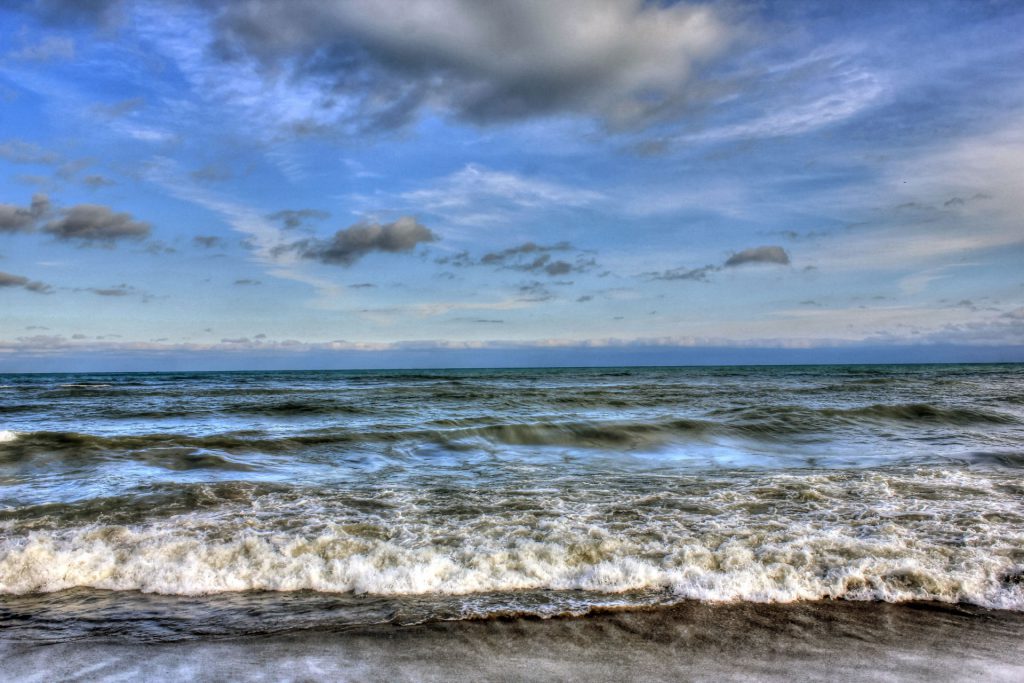DNR Must Stop Coal Pollution
We Energies pollutes Lake Michigan, adding to toxic mercury levels harmful to babies.
Until 2010 our Department of Natural Resources was one of Wisconsin’s hallmark achievements, protecting the environment and the lives depending on it. It’s forerunner agency, the Wisconsin Conservation Commission, was created in the 1930s partly in response to the work of famed conservationist Aldo Leopold. And it is part of a state tradition that includes Gaylord Nelson, the Wisconsin senator who was the founder of Earth Day. With a new administration led by Gov. Tony Evers, Wisconsin has an opportunity to restore this tradition. But the destructive policies and actions taken during the past eight years have been costly, ongoing, and not easily undone.
To wit: the Friday before Christmas, the Walker Administration issued a draft permit to We Energies that would allow them to exceed state standards for mercury and arsenic pollution in the water they discharge into Lake Michigan. The mercury variance is more than three times the DNR’s human health and wildlife limit and the arsenic variance is more than six times the DNR’s human health limit. The DNR held a hearing on Monday, Feb. 11 at 1:00 at the Oak Creek Community Center regarding the renewal of We Energies’ water discharge permit. The company has been polluting for lake going back years.
Despite the event being scheduled for the middle of a work day, there was a substantial turnout. The 150 or so in citizens in attendance overflowed the small room, spilling out into the hallway. People were allotted three minutes to speak, down from the five originally intended, due to the size of the audience and the many who were determined to be heard. Because this was a hearing, testimony was recorded, but questions were not invited. The audience was assured that their concerns–voiced and written–would be taken into account during the decision-making process, and that another hearing could be requested in response to that decision.
And so, in hopes that the process is indeed open and ongoing, and not a “done deal,” I wish to add my thoughts and feelings to those expressed so passionately a the hearing:
Moreover, in addition to these variances, the updated permit fails to enforce strict best practices regarding the treatment of coal ash, the residue of burned coal, in a timely manner. Under an EPA rule called the Effluent Limitation Guidelines (ELG), coal plants are supposed to stop using a process known as “wet ash handling” by 2020 except in instances where they can prove it would be financially or technically impossible. In those circumstances, they can get approval to push back the deadline until 2023. Sure enough, the proposed water permit would allow We Energies to continue this polluting, antiquated method of dealing with coal ash until the latest possible date of 2023.
Coal ash (the residue of burned coal) is pure poison. According to “Coal Ash: The toxic threat to our health and environment,” a report by Physicians for Social Responsibility in 2010, “Coal ash commonly contains some of the world’s deadliest toxic metals: arsenic, lead, mercury…These and other toxicants in coal ash can cause cancer and neurological damage in humans. They can also harm and kill wildlife, especially fish and other water-dwelling species.” These toxic pollutants don’t go away. They’re not biodegradable. Whether coal ash is held in ponds or buried in landfills or spilled into Lake Michigan, these poisons are in the food chain to stay. And while not so long ago, there were no feasible alternatives, there are now. Clean energy. Renewable energy. Affordable energy — in fact, cheaper than coal today.
So this is a request to the DNR–not from We Energies, but from one of the residents of southeast Wisconsin–to require that We Energies, in its discharge water, comply with Wisconsin’s standards for human health and wildlife safety. There is no reason or excuse to add to the coal-related pollution of Lake Michigan. The DNR should also require We Energies to implement best practices regarding coal ash by 2020 or sooner. When it comes to our environment, when it comes to public health and safety, there is a world of difference between We Energies and “We, the People.”
Carl Lindner is an Executive Committee member of the Clean Power Coalition of Southeast Wisconsin and Emeritus Professor at UW-Parkside.
Op-Ed
-
Wisconsin Candidates Decry Money in Politics, Plan to Raise Tons of It
 Dec 15th, 2025 by Ruth Conniff
Dec 15th, 2025 by Ruth Conniff
-
Trump Left Contraceptives to Rot; Women Pay the Price
 Dec 8th, 2025 by Dr. Shefaali Sharma
Dec 8th, 2025 by Dr. Shefaali Sharma
-
Why the Common Council’s Amended Budget is Good Policy for Milwaukee
 Nov 20th, 2025 by Alds. Marina Dimitrijevic and Russell W. Stamper, II
Nov 20th, 2025 by Alds. Marina Dimitrijevic and Russell W. Stamper, II





















